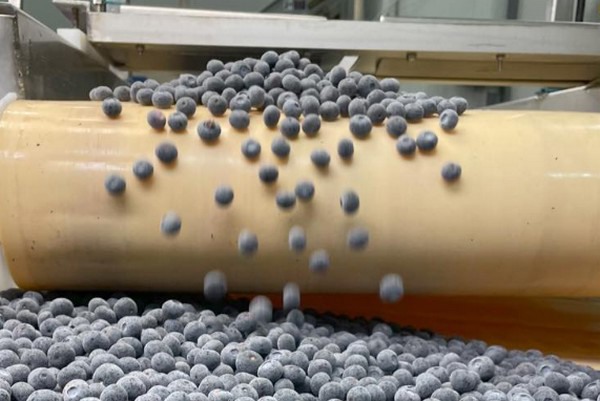Following a U.S.-Japan Trade Agreement formed in 2020 that eliminated Japan’s tariffs on fresh and dried blueberries but left tariffs on frozen blueberries, the U.S. blueberry industry is turning up the heat on this issue. “We hope that USTR will take action to resolve this issue now that Congress has engaged in such a meaningful,” says Alyssa Houtby, director of government affairs for the North American Blueberry Council.
Late last week, a bipartisan group of lawmakers called on the U.S. Trade Representative (USTR) and the U.S. Department of Agriculture (USDA) to work with their Japanese counterparts to eliminate the remaining tariff on frozen U.S. blueberries into Japan. “Truthfully, we think this was an oversight and something that can be addressed through a technical amendment meaning we don’t need to open up bilateral discussions about it,” says Houtby.
Solely frozen U.S. blueberries
The 2020 agreement then removed tariffs on fresh and dried blueberries as well as frozen blackberries, raspberries and strawberries. However, it left a 6.0 percent tariff in Japan on frozen U.S. blueberries. “The U.S. industry is at a competitive disadvantage to other countries who have tariff-free access for frozen blueberries,” says Houtby.
 Houtby says the lost market share for U.S. frozen blueberries creates a ripple effect that impacts the market for fresh blueberries, not only in the Pacific Northwest but also blueberry producing regions in the Northeast.
Houtby says the lost market share for U.S. frozen blueberries creates a ripple effect that impacts the market for fresh blueberries, not only in the Pacific Northwest but also blueberry producing regions in the Northeast.
At the Washington Blueberry Commission, executive director Alan Schreiber notes that Japan has historically been one of the U.S.’ largest export markets. “The majority of frozen blueberries come out of Washington but also Oregon--it’s an important market for the Northwest,” he says “It’s frustrating because we have well-developed relationships out of interest in our product. However, it seems like every country in the world is trying to develop export markets for blueberries and we are ceding this market to competitors.”
Also compounding this issue is the strong state of the U.S. dollar. “Even though we have longstanding business with some companies and while they tried to stay loyal, with the tariff, the state of the economy and the strong dollar, they have to look at other options,” says Bryan Sakuma, VP of sales and marketing for Sakuma Bros. Farms and Processing, who notes that frozen blueberries to Japan were one of its niche products and markets. “Both of those things are significant and putting us at a disadvantage.”
Domestic impact
There are also reverberations from this tariff throughout the U.S. blueberry industry. “The lost market share for U.S. frozen blueberries creates a ripple effect that impacts the market for fresh blueberries, not only in the Pacific Northwest but also blueberry producing regions in the Northeast,” Houtby says. “When one segment of the industry loses a market it can lead to an oversupply scenario which puts downward pressure on pricing, which isn’t good for any grower regardless of where they farm.”
“This tariff means that more blueberries are coming onto the domestic market,” says Schreiber. In turn, the industry is trying to aggressively develop other export markets. Last year Schreiber participated in an export market development trip to Singapore and Malaysia. This year, the Washington Blueberry Commission is also doing promotional activities for frozen blueberries with those countries as well as South Korea, Vietnam and the Philippines, and next year, it will add Indonesia and Thailand. “We wanted to develop export markets regardless of this situation. However, there are processor-exporter companies that asked for an increase in efforts to develop export markets to replace the decline from Japan.”
This week’s letter does lie ahead of a U.S. trade mission to Japan taking place next month, in which attendees such as Bryan Sakuma are looking to see the issue addressed.
For more information:
North American Blueberry Council
https://nabc.blueberry.org/
Washington Blueberry Commission
https://wablueberries.com/wa-blueberry-commission/
Sakuma Brothers
https://www.sakumabros.com/
